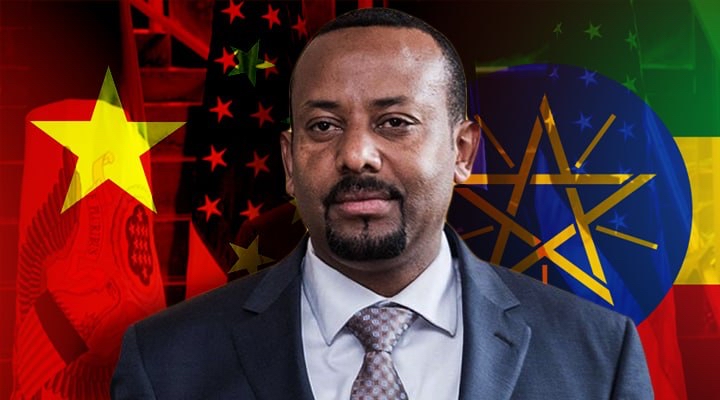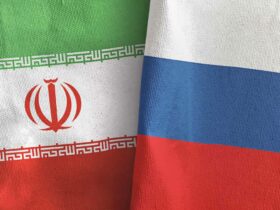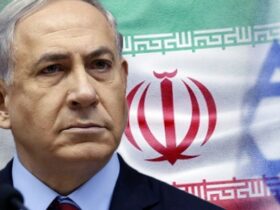By Dogan Duyar / Algeria
The Atlantic Camp, led by the United States, has been attempting to put a stop to Chinese-African cooperation. Following the Eritrean dispute, the Tigray region is now trying to secede from Ethiopia. Ethiopia is facing its second war of independence, for its national security and economic development.
Whilst the United States is provoking Tigrayan separatism in Ethiopia, it has also been holding naval exercises in the Gulf of Aden together with Israel, the UAE and Saudi Arabia, in order to send a message to China and Russia.
Moreover, US Secretary of State Antony Blinken is now trying to put pressure on the Ethiopian-friendly “Kenyuttu” people in Kenya, who have always played a friendly role as “mediators” in internal problems within Ethiopia.
China and Russia, on the other hand, are in solidarity with Ethiopia. The Russian Wagner forces are rumored to be taking their side in the conflict.
The US incites panic
Blinken is now trying to create an atmosphere of panic in Kenya, by making statements such as “the conflict is escalating”, “Ethiopia is about to fall into chaos”, “the whole region is under a threat”, “another refugee crisis is coming”, etc. He is trying to bring down the Ethiopian government by demanding “compromise” on both sides.
The United States, France and Turkey have been pouring fuel on the fire, warning their citizens to leave Ethiopia, suggesting it is likely to destabilize.
What is America ultimately hoping to achieve?
The Belt and Road and the security of energy supply lines
All we have to do is take a look at a map in order to understand what is happening in Ethiopia.
Ethiopia is on the line from the Gulf of Aden all the way to the Suez Canal, commonly known as the “Horn” of Africa, through which 70% of the world’s oil and gas supply passes. It serves as a base for China’s energy security. It is the starting point of the maritime lines of the Belt and Road Initiative in Africa. It is also the first stop on the African railway project, which China is building in effort to create infrastructure to cross the continent entirely on rails, a project which has already begun construction.
The “compromise” demanded by the US is really a demand to reject Chinese-Ethiopian economic cooperation, which first began in the 2010s and was further developed when Abiy Ahmed came into office in 2018.
The African “spring” and the only country never colonized in African history
With its vast land area of 1.12 million km2 and a population of more than 110 million, Ethiopia is the second most populous African nation and the 12th most populous nation in the world.
Often called the cradle of humanity; Ethiopia is the center for the archeological finding of early hominids, homo erectus and homo sapiens.
It was the first African country to become a full member of the League of Nations in 1923.
Addis Ababa is its capital city, where the African Union has been hosted since its establishment.
It is the sole country to never have been colonized on the entire African continent. The Italians tried to invade the country twice, but instead they learned a valuable lesson from the Abyssinians.
The Italians invaded some parts of the country in 1935. After the first Italian victory of 1893-96, they were defeated again in 1941.
Abyssinia managed to repel the foreign attacks with its tradition of National Resistance and its extensive imperial traditions.
Provocations over Djibouti, Eritrea and Tigray
The nations that are currently referred to as Ethiopia, Eritrea and Djibouti were historically a single state. For thousands of years, they lived together under a single flag, the Empire of Aksum.
Their rulers were titled the king of kings (neguse negest).
Western imperialism not only weakened these imperial traditions, it also economically encircled the country, landlocking it by separating first Djibouti and then Eritrea.
A nation-state or a tribal confederation?
Ethiopia has been in the process of a national democratic revolution for more than a hundred and fifty years. This is a struggle of independence, a centralized state and a national program.
It is still trying to establish a nation-state, in a geographic situation where there are dozens of different tribes such as the Oromo and Amhara, and where different languages are spoken and different religions are practiced.
But is it just Ethiopia?
Of course, not. Much the same is true of Nigeria, Mali or the Ivory Coast. All of Africa is fighting to establish its own sovereign nation-state.
Western critics argue that Ethiopia is not being administered properly, its people oppressed and tyrannized. When they say that there is no freedom or fair elections in Ethiopia, it should be understood as follows:
“We do not wish for you to become a sovereign state. If you have to be a state, it must be a federal one… No, forget that, we do not even want you to be a federal state, be more autonomous, be a confederacy… No, it is still not enough, let Eritrea leave the nation… Still not enough, you are all different people, why would you live under one state… separate and divide now.”
The Prime Minister’s patriotic statements and his words on imperial traditions
What is happening in Ethiopia is not a simple internal crisis, but rather an imperialist intervention.
That is why Prime Minister Abiy Ahmed, whom the West accuses of holding too much power, took a stand on the frontlines by calling for “patriotism” and vowing to follow the country’s “imperial traditions”.
The Western Imperialist powers managed to separate Eritrea from Ethiopia in 1995, but apparently this was not enough. Now, separatist organizations allegedly attempting to achieve “people’s liberation” also want the existing “confederacy” to be totally dismantled.
Meanwhile, one by one, the Western centers sing Tigray’s praises, a region of around 7 million people living in a country of 110 million…
Chinese-African investments for cooperation
We are living in the age of the rise of Asia. China and Russia are the closest strategic partners of Ethiopia.
The main accusation against Prime Minister Abiy Ahmed is that he has strengthened cooperation with China since 2018.
China still continues to support Ethiopia’s development with an additional $2.1 billion in investment funds, after a $4.85 billion in railways and infrastructure investments.
With the economic support it provides for Africa, China strengthens the suitable ground for other African nations’ struggles to obtain their sovereignty.

















Leave a Reply